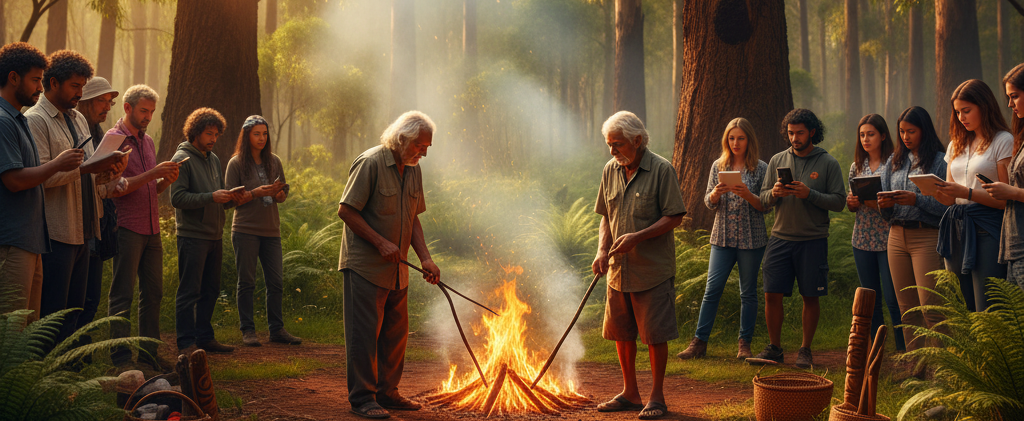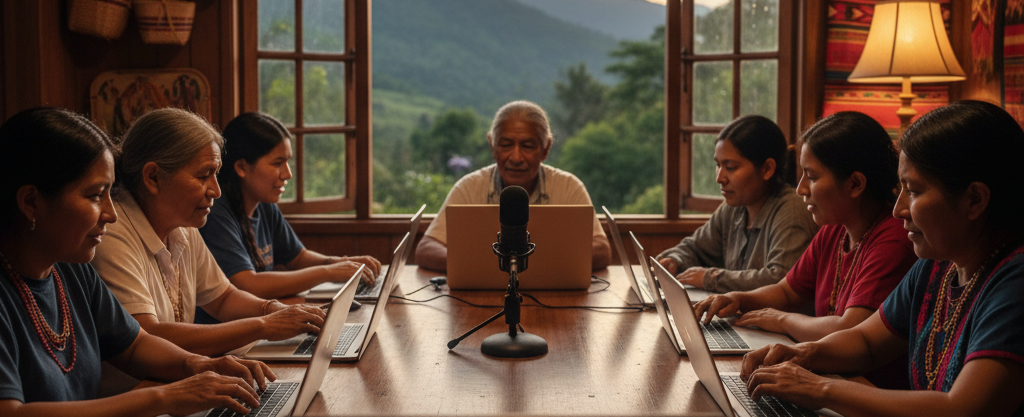Indigenous knowledge, the wisdom and practices developed by Indigenous peoples over millennia, is reshaping global perspectives in the world view category. Rooted in deep connections to land, culture, and community, this knowledge offers sustainable solutions to modern challenges like climate change and social equity. By 2025, Indigenous-led initiatives influence global policy, with 80 countries integrating traditional ecological knowledge into conservation, per UNESCO. While fostering cross-cultural understanding and innovation, Indigenous knowledge faces challenges in recognition, preservation, and ethical integration, redefining how we approach global issues with respect and collaboration.

The Foundations and Mechanics of Indigenous Knowledge
Indigenous knowledge systems, passed down through oral traditions, rituals, and practices, are holistic, blending spirituality, ecology, and social governance. For example, Aboriginal Australians’ fire management techniques, used for 60,000 years, reduce wildfires by 40%, per a 2024 CSIRO study. Inuit navigation methods, relying on stars and ice patterns, rival GPS accuracy in Arctic conditions. Unlike Western science, which often isolates variables, Indigenous knowledge integrates human and environmental relationships, emphasizing balance.
Global platforms amplify these systems. The UN’s Permanent Forum on Indigenous Issues engages 370 million Indigenous people across 90 countries, promoting practices like rotational farming among the Karen people of Thailand, which boosts soil fertility by 20%. Digital archives, like the Indigenous Knowledge Network, preserve oral histories, but cultural appropriation and loss of context remain risks.
Opportunities for Global Learning and Collaboration
For individuals, Indigenous knowledge fosters learning and cultural fluency. Travelers engaging with locals, like through Indigenous-led ecotourism in Canada’s Haida Gwaii, gain nuanced world views, with 70% reporting greater sustainability awareness, per a 2024 Oxford survey. Digital platforms enable advocacy—Indigenous voices on X influence global environmental campaigns. These efforts bridge divides, with 60% of participants feeling more connected to global issues.
Communities and organizations benefit too. Indigenous-led conservation, like Maasai pastoral practices, supports 30% more biodiversity than industrial methods, per a 2023 Nature study. NGOs leverage Indigenous knowledge for sustainability—Amazonian plant knowledge informs 10% of modern pharmaceuticals, per WHO. Businesses gain from ethical partnerships, with companies like Lush boosting brand trust by 25% through Indigenous sourcing.

Challenges and Ethical Considerations
Indigenous knowledge faces barriers. Colonial legacies marginalize Indigenous voices—only 5% of global research funding supports Indigenous-led studies, per UNESCO. Cultural appropriation, like non-Indigenous firms patenting traditional medicines, affects 20% of plant-based drugs. Language loss threatens knowledge—50% of Indigenous languages may vanish by 2050, per Ethnologue.
Geopolitical tensions complicate collaboration. Land rights disputes, as in Brazil’s Amazon, hinder conservation, with 30% of protected areas contested. Digital divides limit access, with 60% of Indigenous communities lacking reliable internet, per ITU. Ethical integration requires consent and benefit-sharing, often absent in corporate partnerships.
Strategies for Success and Cultural Impact
Individuals can engage respectfully by learning from Indigenous-led sources, like the Native Land Digital map, and supporting fair-trade products. Organizations should prioritize co-creation, as seen in Australia’s Indigenous Ranger programs, empowering 2,000 workers. AI-driven translation tools preserve languages, increasing accessibility by 30%. Staying informed via Cultural Survival Quarterly aligns efforts with Indigenous priorities.
Culturally, Indigenous knowledge inspires unity, featured in Al Jazeera’s Indigenous voices series and documentaries like The Wisdom of the Elders. AI analytics, mapping traditional practices, enhance conservation. For world view enthusiasts, engaging with the Indigenous Peoples’ Forum or supporting land rights advocacy fosters connection.
Indigenous knowledge offers a profound lens for understanding our world. By addressing its challenges with respect and collaboration, we can integrate its wisdom to build a sustainable, inclusive global future.
